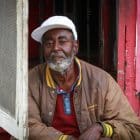colleges
Tulane researchers studying compassion fatigue among COVID-19 workers
|
From Tulane University
Researchers with the Tulane University School of Social Work are conducting a survey to determine the extent of compassion fatigue among of doctors, nurses and other front-line workers responding to the COVID-19 pandemic. The survey is the work of disaster mental health experts Leia Saltzman, Tonya Hansel and Charles Figley, the latter of whom was among the scholars who coined the term “compassion fatigue.” Figley is also director of the Tulane Traumatology Institute. “Compassion fatigue is related to the concept of burnout,” said Saltzman, an assistant professor. “It is something we see sometimes in caregivers and emergency responders, particularly in disaster scenarios. “Most often compassion fatigue can be thought of as an emotional exhaustion that manifests as the reduced ability of a caregiver or responder to engage in empathy and/or compassion for the survivor they are working with.”
The study seeks input from medical professionals, mental health professionals, such as social workers, psychologists and psychiatrists and other first responders.




